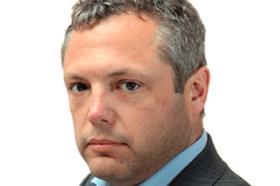Matthew Hill has been chief executive of the Legal Services Board for nearly five years. Does he think his tenure has been an exercise in futility? That could certainly be inferred from the provocative valedictory message he delivered to a seminar on legal ethics last Friday. Hill posited that it is still possible to be a bad solicitor or barrister even if you comply to the letter with the mountain of rules, regulations and behavioural nudges churned out by frontline regulators.

That’s quite a statement – and it is likely to be interpreted by some as an admission of failure.
Hill decamps for the Chartered Insurance Institute shortly. Perhaps his tongue was loosened by the knowledge that all this will soon be someone else’s problem. For the goal he set the watchdogs is both stark and nebulous, if it is possible to be both. And that is to shift their focus from ‘individual transgressions by individual lawyers’, to ‘identifying societal risks, issues of leadership, culture, ethos, and values’.
That sounds to me like teaching lawyers – no, telling them – how to be good citizens as well as good lawyers. But how is that to be achieved? Is that even a regulator’s job?
At all events, the SRA already claims to be moving in roughly this direction. Deputy CEO Juliet Oliver retorted that its revised code places emphasis on obligations which prioritise the public interest, such as acting with honesty, integrity and independence. I would have thought it implicit that these attributes are, or ought to be, a given for any lawyer. Does writing them down modify behaviour? Perhaps.
What would seem to be beyond dispute is that trainees and junior lawyers are not taught enough about ‘ethics’ in the round. Including what ‘ethics’ are in different contexts.
Surveys suggest young professionals want the right not to act for clients they consider to be unconscionable. Big polluters, for example. But of course that’s not the same thing as conducting yourself ethically within an established client relationship.
Only about half of juniors would feel empowered to challenge management if they saw something ‘unethical’. If the regulators really want to shift the dial, they could do worse than to start there.































3 Readers' comments